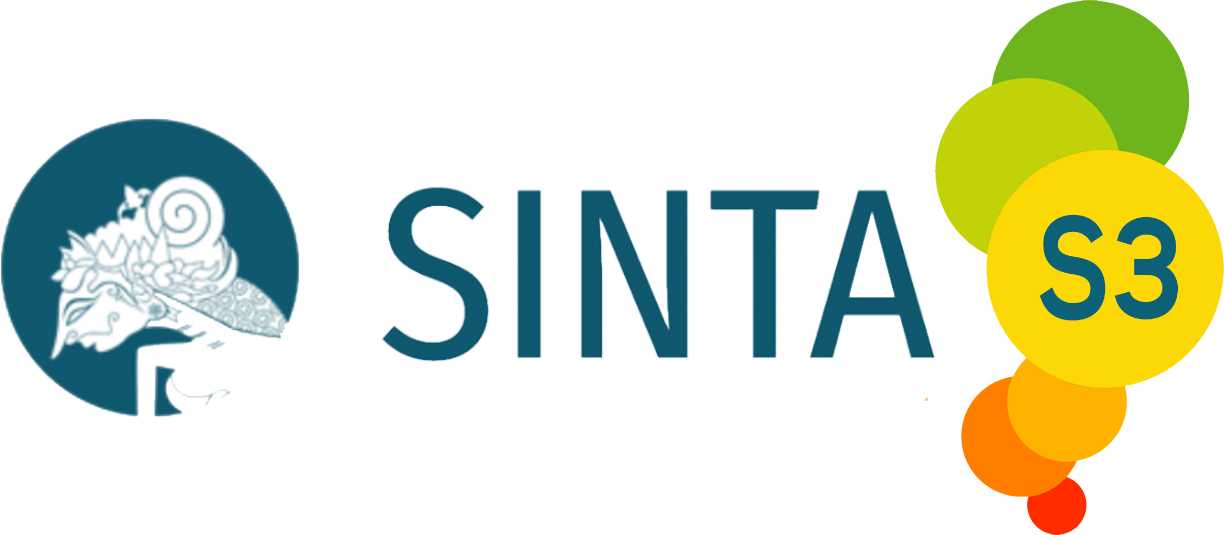Religion, Peace and Human Rights: Thematic Interpretation Perspective of the Indonesian Ministry of Religious Affairs
DOI:
https://doi.org/10.12928/taqaddumi.v4i2.12794Keywords:
Thematic Tafsir Depag, Tolerance and Peace, Human Rights in IslamAbstract
Religion, peace, and human rights are three very important and complex topics. Religion often provides moral guidance, values, and meaning in life for many people. Besides being a source of strength, peace, and solidarity, it can also cause division if differences are not faced with tolerance. Peace is a harmonious state where conflicts are resolved without violence. Peace is often achieved through dialogue, understanding, and cooperation. Human rights are basic principles that guarantee every individual inalienable rights, such as freedom, equality, and dignity. The three are closely interconnected. When human rights are respected and protected, peace is more likely to be achieved, and religion can play a positive role in building a more just and harmonious society. This study aims to reveal a limited picture of the thematic interpretation of the Indonesian Ministry of Religious Affairs (Depag) regarding peace and human rights in its efforts to make religion a source of harmony among people, both nationally and globally. The method used in this study is qualitative, focusing on the thematic interpretation of the Indonesian Ministry of Religious Affairs (Depag) regarding Peace and Human Rights with a text analysis approach. From this study, it was found that the thematic interpretation by Depag provides guidance for its readers to always practice religion moderately so that the peaceful values of Islam can always be embodied in the actions of every Muslim.
References
Anggraini, Mimi. “Intoleransi Menurut Tokoh Agama Islam dan Kristen”, Studia Sosia Religia 4, no.1 (2021).
Arifin, Muhammad Patri, “Rekonsiliasi Dalam al-Quran”, Rausyan Fikr 11, no. 1 (2015):130
Asir, Ahmad. “Agama dan Fungsinya Dalam Kehidupan Umat Manusia”, Jurnal Penelitian Dan Pemikiran Keislaman 1, no. 1 (2014): 51-58.
Fauzi Almubarok, “Keadilan Dalam Persfektif Islam”, ISTIGHNA 1, no. 2 (2018): 130.
Halim, Abdul et, al, “Paradigma Islam Moderat Di Indonesia Dalam Membentuk Perdamaian Dunia”, Jurnal Ilmu Sosial, Manajemen, dan Akuntansi (JISMA) 1, no. 4 (2022): 706.
Harjuna, Muhamad. “Dialog Lintas Agama Dalam Perspektif Hans Kung”, Living Islam: Journal of Islamic Discourse 2, no.1 (2019).
Imran, Ali. “Peranan Agama Dalam Perubahan Sosial Masyarakat”, HIKMAH 2, no.1 (2015).
Iqbal, Muhammad. “Analisis Kontektual Atas Tafsir Departemen Agama Republik Indonesia”, Jurnal Iman dan Spiritualitas 2, no.1 (2022).
Jempa, Nurul. “Nilai-Nilai Agama Islam”, Pedagogik: Jurnal Ilmiah Pendidikan dan Pembelajaran 4, no. 2 (2017).
Khlwani, Ahmad (2019), Enam jenis Konflik Keagamaan di Indonesia, diakses dari NU.or.id, 2 Januari 2024. https://www.nu.or.id/nasional/penemuan-enam-jenis-konflik-keagamaan-di-indonesia-sXM M4
Kurniasih, Dwi. “Ujaran Kebencian di Ruang Publik: Analisis Pragmatik pada Data Pusat Studi Agama dan Perdamaian (PSAP) Solo Raya”, Jurnal Studi Agama dan Masyarakat 15, no. 1 (2019).
Kurniawan, M. Arif. “Tinjaun Strategi Wacana Kuasa Pemerintah Dalam Tafsir al-Quran Tematik Kementrian Agama RI, Hermeneutik: Jurnal Ilmu al-Quran dan Tafsir 13, no.2 (2019).
Lajnah Pentashih Mushaf al-quran Badan Litbang dan Diklat Kementrian Agama RI, Tafsir Tematik: Hukum Keadilan dan Hak Asasi Manusia, Jakarta: Lajnah Pentashihan Mushaf Al-Qur'an, (2010).
Marta, Bob. “Konflik Agama dan Krisis Intoleransi Tantangan Atau Mimpi Buruk Keberagamaan Di Indonesia”. Di Publish 6 Agustus 2020, Di akses 3 Januari 2024, 19.30. Retrive from https://www.pskp.or.id/2020/08/06/konflik-agama-dan-krisis-intoleransi-tantangan-atau-mimpi-buruk-keberagaman-indon esia/
Natalia, Angga. “Faktor-Faktor Penyebab Radikalisme Dalam Beragama (Kajian Sosiologi Terhadap Pluralisme Agama Di Indonesia)”, Al-AdYaN 11, no.1 (2016).
Octaguna, Afreiza. “Intoleransi Masyarakat Mayoritas Terhadap Minoritas Di Kota Cilegon”, Moderasi: Jurnal Kajian Islam Kontemporer 1, no. 2 (2022).
Ridwansyah, Ardhi. “Laporan Survei Nasional: Kekerasan ekstrem, Toleransi, Dalam Kehidupan Bergama di Jawa Barat tahun 2022, 8 November 2023, retrived from http://www.halojabar.com/hasil-survei-nasional-lsi-jawa-barat-toleran-dan-anti-kekerasan/.
Sada, Heru Juabdin. “Manusia Dalam Perspektif Agama Islam”, Al-Tadzkiyyah: Jurnal Pendidikan Islam, 7 (2016).
Salu, Rupertus Diego Stilda. “Agama Untuk Perdamaian Gagasan dan Upaya Perdamaian Dunia Dalam Perspektif Etika Global Hans Kung”, Rajawali 21, no.1 (2023).
Wahidah, Nur Robi. “Fiqh Toleransi Dalam Persfektif al-Quran Departemen Agama”, Maghza 1, no.2 (2016).
Wahyuni, Dwi. “Agama Sebagai Media dan Media Sebagai Agama”, JIA 18, no.2 (2017).
Wartini, Atik. “Tafsir Tematik Kemenag: Studi al-Quran dan Pendidikan Anak Usia Dini”, Thufula 5, no.1 (2023).
Wibisono, M. Yusuf. “Agama, Kekerasan dan Pluralisme Dalam Islam”, Kalam: Jurnal Studi Agama dan Pemikiran Islam 9, no. 2 (2015).
Zainudin, Dr. HM., MA (2020). “Problem Keberagamaan Di Indonesia”, Di akses 3 Januari 2024, 20.00, Retrive From; http://uin-malang.ac.id/r/201201/problem-keberagamaan-di-indonesia.html
Downloads
Published
Issue
Section
License
Copyright (c) 2024 Rizki Firmansyah, Budi Jaya Putra

This work is licensed under a Creative Commons Attribution-ShareAlike 4.0 International License.
License and Copyright Agreement
In submitting the manuscript to the journal, the authors certify that:
- They are authorized by their co-authors to enter into these arrangements.
- The work described has not been formally published before, except in the form of an abstract or as part of a published lecture, review, thesis, or overlay journal. Please also carefully read the Taqaddumi Author Guidelines at http://journal2.uad.ac.id/index.php/taqaddumi/about/submissions#onlineSubmissions
- That it is not under consideration for publication elsewhere,
- That its publication has been approved by all the author(s) and by the responsible authorities – tacitly or explicitly – of the institutes where the work has been carried out.
- They secure the right to reproduce any material that has already been published or copyrighted elsewhere.
- They agree to the following license and copyright agreement.
Copyright
Authors who publish with the Taqaddumi Journal agree to the following terms:
- Authors retain copyright and grant the journal right of first publication with the work simultaneously licensed under a Creative Commons Attribution License (CC BY-SA 4.0) that allows others to share the work with an acknowledgment of the work's authorship and initial publication in this journal.
- Authors are able to enter into separate, additional contractual arrangements for the non-exclusive distribution of the journal's published version of the work (e.g., post it to an institutional repository or publish it in a book), with an acknowledgment of its initial publication in this journal.
- Authors are permitted and encouraged to post their work online (e.g., in institutional repositories or on their website) prior to and during the submission process, as it can lead to productive exchanges, as well as earlier and greater citation of published work.








